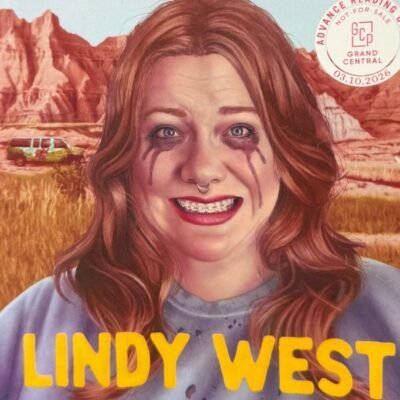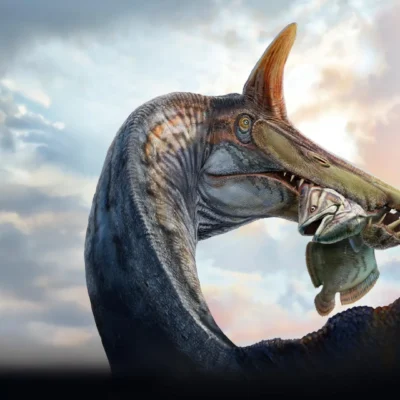There is a widely held belief among those working in media that audiences prefer “softer” content on weekends, despite statistics not really supporting it. It’s an idea I encourage, though. The pace of news is so fast that it seems difficult to pause and think things differently.
I remember the Sundays when my father would go out early for a coffee and come back with the newspaper and the weekly magazine supplement. I found the magazine really amusing, especially the children’s section. I didn’t pay much attention to the newspaper, with its hard news. Of course, I must have been 10.
So you understand that I’m biased towards weekend content, and it’s in that spirit that I write this post. But I won’t stray too much into the softness. What I propose is something akin to a thought exercise so we can reconsider some of our commonly held views.
It is said that we live in the age of the homo economicus, although it is not technically a true depiction of human behavior, as humans are not perfect risk-assessing machines trying to maximize their profits. And even if they try to be, other nuances, like emotions, biases, and desires, get in the way.
However, we live in an age where almost every aspect of human existence has been commodified. Even rest must be ‘productive’ rest. Financial benefit seems to be the driving factor, the motivator at a personal and social level. Though GDP as a measure of growth is really only partial, we still refer to it constantly. Our relation to ourselves, to others, to society, and the world in general is almost always mediated by something we can’t agree on how to define: money.
Money As the Tao of Today
The first principle of Taoism, according to its founding text the Tao Te Ching and the West’s most famous proponent of it, Alan Watts, is that “the Tao that can be defined is not the Tao”. Watts expresses it like this:
“There is no definition for it. It’s called “the Way,” or “the course of things.” It is what everything basically is — what you are. And it cannot be defined, and should not be defined — in just the same way that you have no need to bite your own teeth, or to touch the tip of this finger with this finger, or to look into your own eyes. It is basic to everything — eternal; it’s what there is; it’s the which for which there is no whicher.”
We could say that that which we can’t define, yet is everywhere today, is money, and the money we define, is not money. What is it then? A commodity? A medium of exchange? A store of value? A means of payment? An accounting entry? A digital annotation? A social contrivance?
You see, we understand money to be all of that and more, but we can’t reduce it to a single definition because the moment we do, that definition becomes obsolete due to a new definition of money. So we can’t really point to something and say that is money, but money is everywhere. It is the way of things, what originates them but also their purpose.
There was a time when people needed very little money to live because they had everything else required for sustenance. Today, in many if not most parts of the world, we need money for everything necessary for life. We have engineered a society dependent on the constant supply of money. It’s unclear whether money is a medium for something or an end in itself.
Being that which allows us to satisfy our unsatisfiable desires, it has become the object of our desire because it promises to hold the key to all of those desires. But our desire can never be satisfied because that which is at its core is a lack, what Lacan called “objet petit a”. That lack is the realization that we have no ontological reality, that everything that we are is a product of our circumstances. Money becomes the reality we cling to because through our desires we exist.
And that becomes the principle upon which we organize our societies. The satisfaction of our desires is the principle, because without them we have no purpose. Money then is the physical manifestation of the drive to satisfy our desires and like them we can’t define it because the moment we do, it has mutated. So money becomes that which can’t be defined. “It is basic to everything — eternal; it’s what there is; it’s the which for which there is no whicher.”
Capital and Labor Arise Mutually
The second principle, following Watts, is that of mutual arising: “That is to say, that all the great contrasts of life — black and white, positive and negative (or as the Chinese call it, yang and yin), self and other, long and short — are not, as it were, things in conflict; they are like the north and south poles of a magnet: they go together.”
From money as Tao, as that which is the way of everything, capital and labor arise together, not in conflict, but as the two ends of the same stick. Labor creates capital, which is then used to create more labor that creates more capital, ad infinitum. Money is what gives reality to both.
If there was no money, labor would not exist. Labor is that for which we expect to receive a monetary payment, whether we receive it or not. So for there to be labor, there needs to be money, and if there is money, then there is capital, either as a form of accumulation of its undefined form, or of what can be acquired by it.
Capital needs labor to increase, with that increase measured in monetary terms. But if money is the way of things, the enabler of our desire, then the desire for capital has no end, which then engenders more labor. Money becomes the means and the end from which capital and labor, as the forms of maintaining a constant supply of money, are begotten.
Marx’s critique of capital, as that which subjugates labor, does not consider the role of money in their mutual arising. In the Taoist way, it would be like criticizing the day for subjugating the night, but there would be no day if there was no night.
The Invisible Hand as Wu-Wei
Alan Watts defines the third principle of Tao as wu-wei: “It means, essentially, “not interfering” — not acting in such a way as to go against the grain of things.” But on the other hand, it doesn’t mean passivity; it means acting in accordance with the course, in accordance with the Tao, the Way.”
If money becomes the Tao and capital and labor arise mutually from it, then not interfering with it becomes the natural thing to do. Labor and capital meet each other in the markets, in their abstract and concrete forms, and man cooperates with them by not going “against the grain of things”. By letting labor and capital work with each other without interfering, man is acting in “accordance with the course”, in accordance with money, the Way.
Adam Smith called this the invisible hand. It is the way in which self-interested individuals respond, even unintentionally, to supply and demand, therefore balancing labor and capital. In Taoism “man is seen as part of nature, or at one with nature”, in this case, money, and he cooperates with the markets “in the same way as the sailor of a sailboat cooperates with the wind”.
Intrusion in the Way is akin to destabilization and should be avoided. Those who interfere are those who give primacy to labor over capital or capital over labor, without understanding that they arise mutually. It would be like legislating that the day should extend into the night, or that the night should hold on into the day.
But Money Can Never Be the Tao
Now, of course, I understand this thought exercise to be a stretch of imagination. The Tao, as meant in Chinese philosophy, cannot be literally equated with money. For Taoism the Tao is the substance of what everything is, including the plant and animal worlds, other galaxies, and even dark matter. The matter of matter if you wish. And that entirety cannot be encompassed by money. Although we are really trying.
But in our social realities—where a baby is born, not with an original sin, but an original monetary debt—comparing how the principles of one can illustrate the principles of the other might help us understand the magnitude of the economy in our lives.
It may also, due to the ironic image that emerges, help us relativize the magnitude of the economy in our lives.






